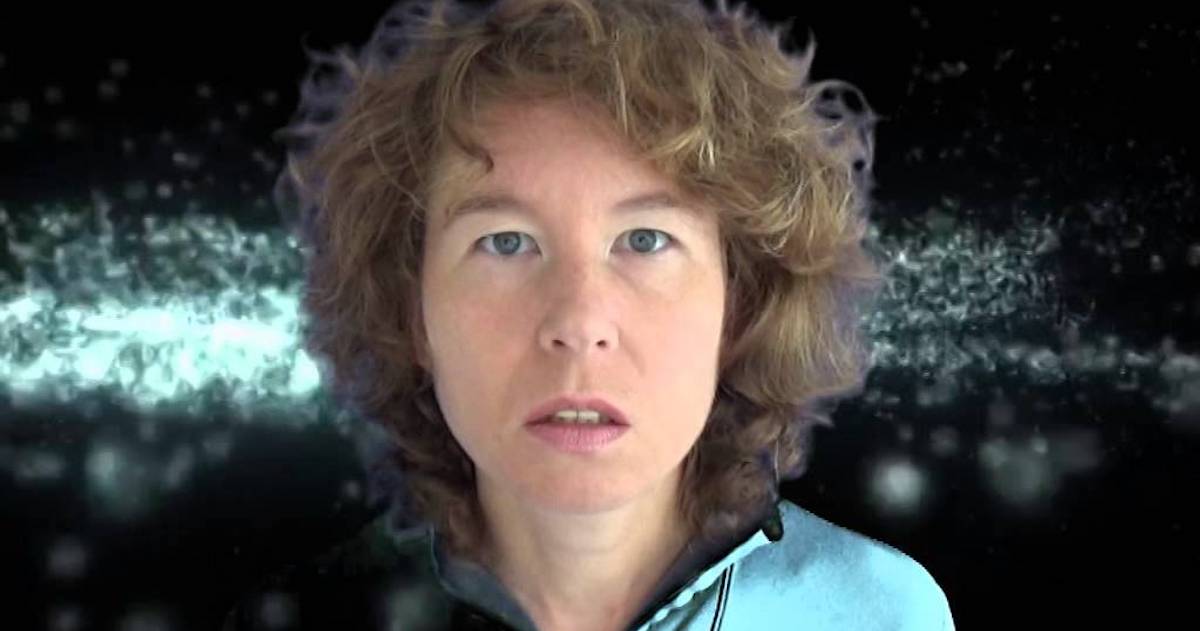If you’d be surprised to stumble across a well-trained and serious scientists explaining things on YouTube, you wouldn’t be alone. That said, the pandemic turned a lot of lives upside down, and to cope with being away from her office and lab, theoretical physicist and mathematician Sabine Hossenfelder turned to social media.
She said it began as a way to keep her sanity, but eventually her brand – science without the gobbledygook – reached over a million subscribers.
“People can go to my channel and get the brief, 20-minute summary. They don’t have to read a whole book or download a review article, which they won’t understand anyway.”
Every month she drops vidoes full of wit, wisdom, and yes, solid science to fellow nerds all over the world.
Her success has allowed her to stop chasing research grants, too, since internet money is more reliable and less “like a lottery.” The videos and her many subscribers have eventually turned into a reliable enough revenue stream to fund her research in quantum gravity.
Hossenfelder also has views that go against the grain of many in her field, and her channel gives her the platform to speak on her beliefs.
One big one is that she thinks too many of her colleagues are obsessed with beauty and simplicity, especially when it comes to trying to understand the fundamental underpinnings of the universe.
“My fellow physicists have come up with very narrow notions of beauty, which they derived from things that worked in the past. It’s all well and fine. It’s worth a try. But now they’ve gotten stuck on it. This is why you see so many ideas that fail over and over again.”
Basically, she believes that sometimes there just is no simple answer, and therefore no way to easily decide which answer is the right one.
She’s not totally alone in believing that the standard model of particle physics won’t lead to an understanding of dark matter – astrophysicist Patrician Rankin is skeptical, too.
“I’m definitely in sympathy with a lot of what she says about it being important to actually delineate what science can and can’t tell us.”
Stacy McGaugh, a professor at Case Western Reserve University, also shares the belief that a modified theory of gravity could go a long way to understanding dark matter.
On the opposing side of the field are well-funded researchers like Don Lincoln, whose work with the Higgs boson particle and Large Hadron Collider is still considered cutting edge.
Hossenfelder thinks that these always bigger, always more expensive colliders are destined to fail when it comes to new and important discoveries.
For Lincoln and his ilk, though, that’s hard to believe. They think that there’s every reason to believe dark matter will come to light if they keep going on the current research path, and that there’s little chance it could be a modified form of gravity.
“Most cosmologists would say that while it’s true that these modified motion and modified gravity theories can be made to work pretty well on the size of rotating galaxies, or the size of clusters of galaxies, where they fail is on the truly cosmic scale.”
On a lighter note, Hossenfelder produces fun music videos, too, and enjoys mixing audio and looking for quirky sound effects and the like to make them unique.
Hossenfelder has joined a small contingent of other scientists who are comfortable interacting with the general public – Carl Sagan and Neil deGrasse Tyson come to mind – but she says they can all face derision for their choice to embrace social media.
So far, she’s managed to commit time to her social media presence and continue her research, and honestly, right now one is allowing her to do the other without worrying about securing funding from the federal government.
That said, she’s not sure anyone should strive to follow in her footsteps.
“I’m a sarcastic, annoying, permanently grumpy middle-aged woman, and no one in their right mind should strive to be anything like me.”
Most of us don’t have the education, sense of humor, or time to be here anyway – but I don’t know.
It seems like, as far as role models go, you could definitely do worse.
Source: https://twistedsifter.com/2023/10/sabine-hossenfelder-brought-serious-science-to-youtube-and-its-paying-off-in-a-big-way/
